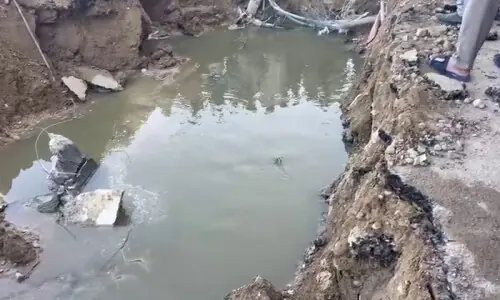KARACHI: The Sindh government has signed an agreement with the Patients Aid Foundation (PAF) to operate an ambulance service with a fleet of 60 fully loaded vehicles in the city on the public-private partnership basis.
The agreement was signed by health secretary Usman Chachar on behalf of the Sindh government while Mushtaq Chapra on behalf of the Patients Aid Foundation at a ceremony held at CM House on Tuesday.
The ambulance service would be made available free of cost immediately for the benefit of the public.
The agreement was signed in the presence of Chief Minister Syed Murad Ali Shah, Health Minister Dr Azra Fazal Pechuho, adviser to CM Murtaza Wahab, principal secretary to CM Sajid Jamal Abro, secretary for finance Syed Najam Shah, special health secretary Dr Dabeer, Zahid Bashir of PAF, JPMC executive director Dr Seemin Jamali, Tariq Mehmood and Murtaza Abbas Kazmi of the Aman Health Care Service.
The Sindh government during the current financial year will take over the Aman Ambulance service and run it in Karachi in collaboration with PAF.
“In the second step, the goal is to expand the Karachi fleet of ambulances from 60 to 200 by the end of 2019,” the chief minister said.
It may be noted that there is already a pilot project operating in Thatta and Sujawal with 25 life-saving ambulances.
Titled Sindh Peoples Ambulance Service, the project has been running for the past two years under a similar public-private partnership agreement between the Sindh government and Aman.
Speaking on the occasion, the chief minister said the ambulance service would be expanded to all districts of Sindh on an incremental basis. He said the service would be made available free immediately for the benefit of the public.
The World Health Organisation emphasises the importance of emergency medical services systems, which are usually the first point of contact between the healthcare system and people with acute conditions.
According to a study in many low- and middle-income countries there is lack of ambulance services and many patients arrive at healthcare facilities on their own.
More than one-third of all deaths are preventable with early intervention during the pre-hospital phase while up to 90 per cent of injury-related mortalities occur in the presence of an adequate emergency medical service which could be reduced to 45pc. However, due to lack of funding and trained personnel, emergency services are a low priority and are often limited to providing basic transport facilities without efficient triage services.
The lack of pre-hospital care services in Pakistan has been a cause of great concern over the years.
Published in Dawn, December 19th, 2018



































